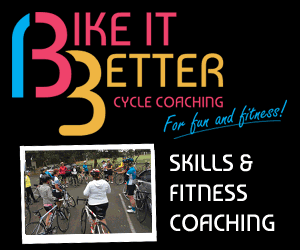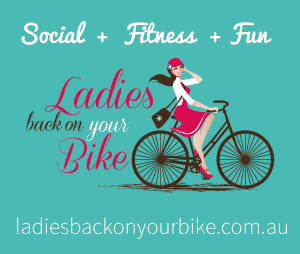
Iain Treloar and Danielle Madeley find that, when paired with a social conscience, bikes have the ability to change lives.
The bicycle has long been a powerful tool of empowerment and freedom. Capable of conquering previously insurmountable distances in the developing world, bikes grant vital mobility to the poor and disempowered. In Australia, most of us are lucky are enough that such concerns aren’t critical in our decision to ride a bike—we experience, and love, bike riding for the sheer joy of it, for exercise, for health benefits, and for the quiet environmental and societal change it can create.
However, there are a number of organisations using the bicycle as a tool for positive change. Innovative, bike-related community programs, not-for-profits and social enterprises are springing up across Australia.
Recycled bikes
Bikes 4 Life aims to provide sustainable transport to the underprivileged, particularly youth, in vulnerable, isolated and neglected areas across the globe. Besides reconditioning donated bikes here in Australia, Bikes 4 Life establishes local industries in areas of need by supplying bikes, tools and parts, as well as training for locals to become bike mechanics.
Ebony Butler, founder of Bikes 4 Life, was filming a documentary on child soldiers in Northern Uganda when she came up with the idea. While there she connected with local children who were simply unable to get around, or even get to school. The solution was bikes. The kids knew this too.
They asked her: “When you come back, Miss, will you bring us bikes, Miss?”
The bikes available locally were usually cheap, single-speed city bikes—the kind manufactured for the big cities of China and unsuited to African terrain. The lack of transport infrastructure suggested that the humble mountain bike, frequently found neglected in garages across Australia, could be the answer. Butler realised that simply sending these considerably more complex bikes would not work without teaching people to maintain them. The first container to be shipped was fitted out with work benches and equipment to make it a mobile, self-contained bike workshop. It was a huge success.
Starting in a warehouse in Port Melbourne, the bikes in the first container were mostly scrap from other bike recycling efforts. Today, Bikes 4 Life has workshops in Melbourne, Sydney and Brisbane, with the Richmond (Melbourne) workshop alone having space for around 1,000 bikes, enough to fill one and a half containers. Workshop volunteers include bike enthusiasts and community members, with teenage refugees recently joining the team. The teenagers’ work earns them a bike of their own, which they learn to recondition and maintain. Bikes 4 Life volunteers have different skill levels, offering a great place to learn bicycle maintenance.
In addition to several generous sponsors keeping the workshops supplied with consumables, bikes not suited to off-road use are reconditioned and sold in Australia to raise funds.
Having just wished bon voyage to its first container bound for Papua New Guinea, Bikes 4 Life is now looking towards its next location, in Central Australia, and continuing to help support Uganda, PNG and local disadvantaged communities in Australia. If you’re interested in getting involved, you can find out how to donate your time (or old bikes) at Bikes 4 Life.
There’s also a national directory of places to donate old bikes at Give Now.
Good Cycles
Melbourne-based Good Cycles is a not-for-profit social enterprise founded with two goals in mind: to provide mobile bicycle servicing for riders in the city and inner suburbs and to provide training and employment to those experiencing disadvantage and struggling to find stable work. Applicants are sourced through work experience programs. These future mechanics are employed as trainees and practice their skills with the guidance of a supervising mechanic. They complete their formal accreditation as bicycle mechanics and finish with a Certificate III in bicycles.
Good Cycles co-founder, Luke Wright, says the primary goal for the organisation is “to become a training ground for bike mechanics…providing a helping hand for people who otherwise don’t get many opportunities”.
Wright says with support workers aiding mechanics’ transition into the workforce, and help with significant on- and off-the-job training, the results are incredibly positive. “We’re keen to provide the support, mentoring, education and training so that people can live up to their potential,” Wright says.
The concept not only benefits the mechanics, but also means local riders can access affordable and well trained mechanics.
For regular commuters, the inconvenience of finding time to drop their bike off to a store is replaced with the practicality of a well-equipped, cargo-bike-straddling mechanic travelling to them to work on their bike during business hours. Heck, it’d be a brilliant concept if it just did the mobile-mechanic part.
Good Cycles works especially well for large organisations with a high number of bike-commuters. Wright explains the core business is servicing large groups at office buildings. “An organisation books in a session—10, 20, 30 bikes, say—and our expert mechanics and trainees rock up with all the necessary tools and parts on board, and service the bikes on site. It’s all about the convenience,” he says.
Although it’s a new venture—operating since April 2013—Wright says Good Cycles receives a lot of great support and goodwill from the business, government and community sectors.
He says any surplus cash is invested back into the next trainees in the program and “It’s all about first having the capacity to deliver the social program”.
As bike riding grows in popularity as a mode of transport, the Good Cycles team neatly fills a gap in the market, while also helping its employees in a very tangible way.
“We’ve seen one of our trainees go from being a backyard bike enthusiast who’d been out of work for a year or two, to becoming a key member of our team,” Wright says.
“He’s been thrown in the deep end of a new industry, and he’s enjoying it and learning a lot.”
From a simple belief that “bikes are a brilliant tool for engaging people and giving them a hand up,” a clever and caring new business has emerged.
Volunteering
It’s widely acknowledged that volunteering is a great way for individuals or groups to give back to the community, to build skills and make social connections. However, research has also shown that there’s a health benefit gained from volunteering. In a recent study conducted by Carnegie Mellon University, it was found that older adults spending more than 200 hours volunteering each year had their risk of high blood pressure reduced by as much as 40%, largely attributed to volunteers maintaining social connections that they may otherwise miss out on.
For younger people, the benefits of volunteering are also substantial. With relevant skills in the workforce highly sought-after by both recent graduates and their potential employers, volunteering is a terrific way to build that experience and get a foothold in an industry. For exchange students and people without established social networks, volunteering provides an opportunity to make new friends and other social connections.
Apart from the many benefits experienced by the volunteers themselves, there is a significant benefit to organisations that people volunteer for. Bicycle Network, publisher of Ride On, is one such organisation. Volunteers contributed an astounding 9,086 days of their time in 2012 alone, helping run events and assisting in the office or on a number of other programs, including Ride2School and Ride2Work. It’s an astonishing commitment from a much-appreciated group which Bicycle Network CEO, Craig Richards, describes as “the lifeblood of the organisation”. Find out how to ‘do more’ at Bicycle Network.
A further example of the powers of volunteering can be seen in bicycle cooperatives, or ‘Bike Kitchens’, across Australia. These ‘co-ops’ sell affordable refurbished bikes to attendees, provide affordable maintenance assistance and teach them relevant skills to complete their own basic repairs. In many of these workshops, it’s not necessarily about building skills to transfer to paid work—it’s often as simple as people from all works of life loving bikes and enjoying the opportunity to tinker with them. The upshot of this is that through these co-ops, bikes are given a second lease of life, the community is engaged and educated and passionate riders are able to help others discover the joys of healthy, affordable and sustainable transportation.
Ride On content is editorially independent, but is supported financially by members of Bicycle Network. If you enjoy our articles and want to support the future publication of high-quality content, please consider helping out by becoming a member.





Reblogged this on Cycling, Traveling, and Observing the World and commented:
Great post from cycling source Ride On.
Reblogged this on BikeNCA and commented:
Good stuff with bikes!
Have heard also that there are a number of men’s sheds who now do up bikes that have been dumped or donated for giving to people or groups who need them in the community.
Reblogged this on Girl Parts.